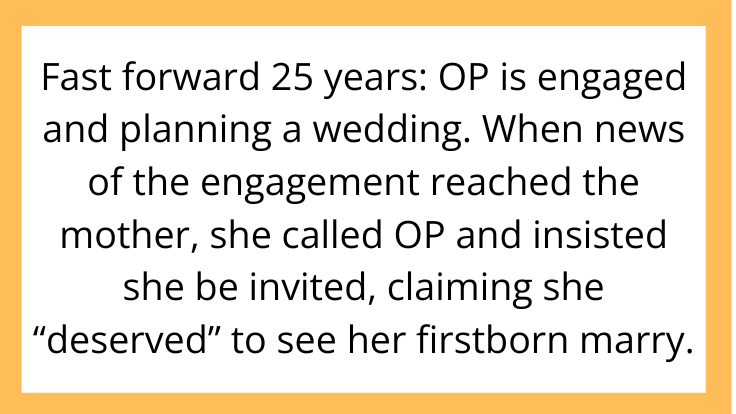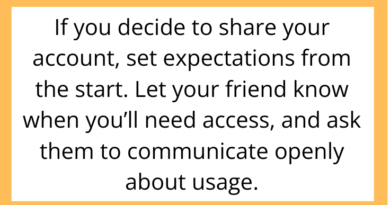AITAH for Refusing to Invite My Estranged Mother to My Wedding?
Weddings can be a beautiful celebration of love—but they also have a way of dredging up old wounds. This AITAH story shines a spotlight on what happens when a long-estranged parent demands to be included in one of the most important days of your life.
One Reddit user asked a question that split opinions: Am I the jerk for refusing to invite my mother, who abandoned me as a child, to my wedding—despite pressure from extended family?
This is a story about reconciliation, boundaries, and whether blood alone earns someone a seat at your table.
The Background: A Childhood Marked by Absence
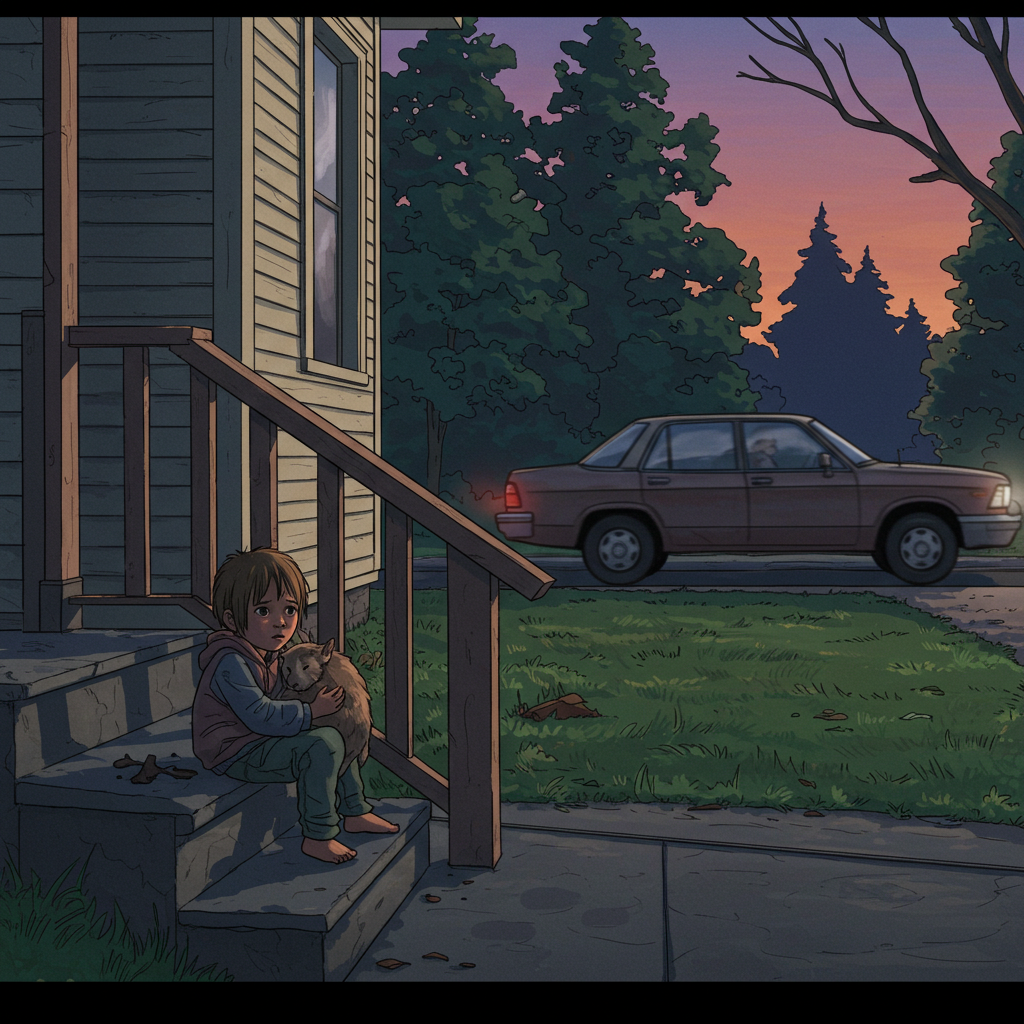
The Original Poster (OP) explained that their mother left when they were five years old. She moved across the country, remarried, and started a new family. OP’s father raised them single-handedly, sacrificing his career and personal life to give them stability.
Over the years, OP’s mother occasionally sent birthday cards and holiday gifts but never visited or contributed financially. Their relationship was distant, bordering on nonexistent.
Fast forward 25 years: OP is engaged and planning a wedding. When news of the engagement reached the mother, she called OP and insisted she be invited, claiming she “deserved” to see her firstborn marry.
OP declined, explaining that she wasn’t part of their life and that inviting her would feel disingenuous. The mother was devastated and accused OP of being cruel and ungrateful. Extended family took sides, with some relatives arguing OP should “let bygones be bygones.”
Now OP wonders: Am I the jerk for standing firm on my boundaries, even on a day meant to celebrate love and family?
Estrangement and Entitlement: What Defines Family?
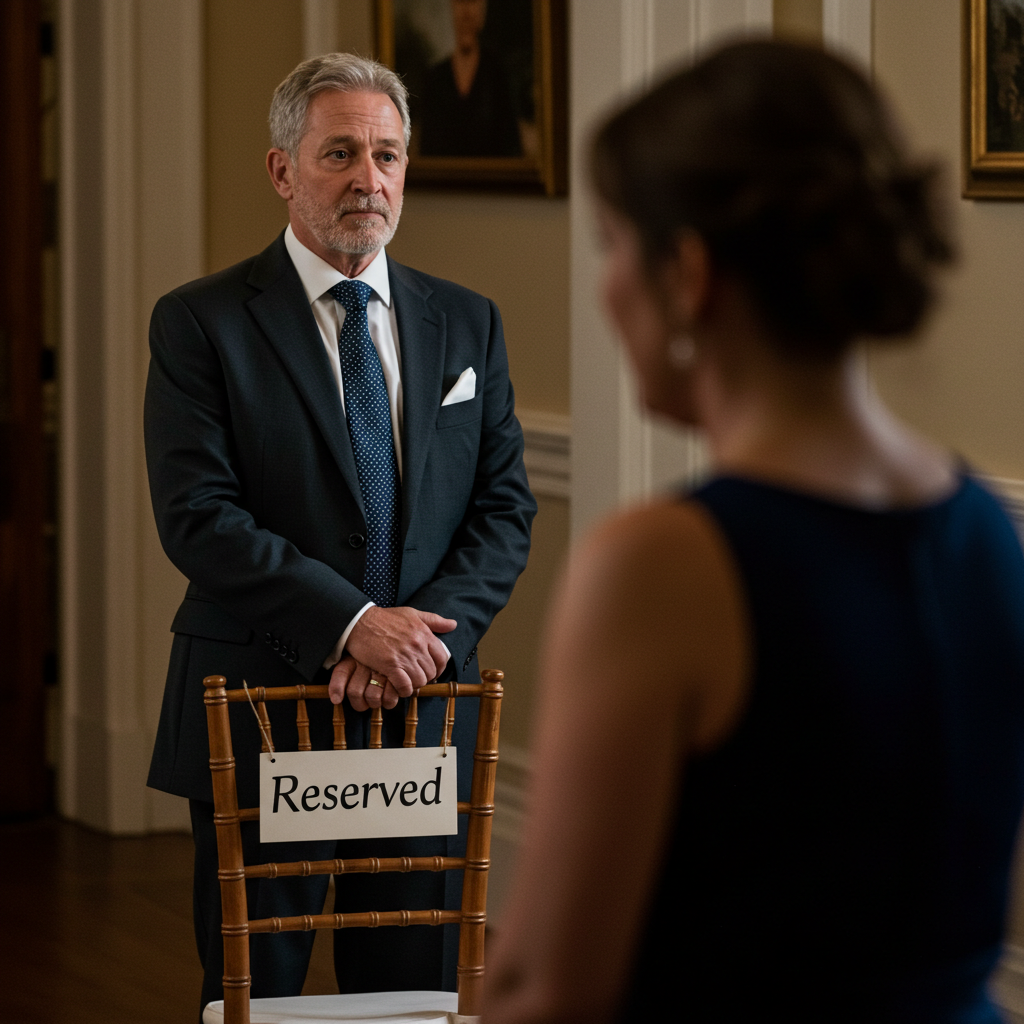
The Myth of Automatic Inclusion
One of the most common arguments OP heard was that a wedding is a “family event,” and that all biological relatives deserve a place. But the reality is more nuanced.
Just because someone shares your DNA doesn’t mean they share your life. OP’s mother made choices that led to decades of estrangement. Her sudden interest in reconnecting when it’s convenient doesn’t erase that past.
Reconciliation on Whose Terms?
Many Redditors pointed out that real reconciliation is a process—not a demand. If OP’s mother genuinely wanted to rebuild a relationship, she could have reached out years earlier, rather than waiting for a milestone event to force the issue.
Reconciliation should be mutual, respectful, and gradual. Using a wedding invitation as leverage to claim maternal rights is not the same thing.
Reddit’s Verdict: Not the Jerk

The AITAH community overwhelmingly supported OP’s choice.
Here are a few standout comments:
“A wedding is about the people who were there for you—not the people who abandoned you.”
“You don’t owe anyone an invitation just because you share genes.”
“You can forgive someone without inviting them back into your life.”
In other words, OP’s decision wasn’t about cruelty. It was about honoring the reality of their family history.
The Emotional Toll of Family Pressure

Guilt as a Weapon
OP described feeling immense guilt after extended relatives called them heartless. This is a common dynamic in estranged families: people who weren’t around for the pain often minimize it or dismiss it outright.
The truth is, guilt isn’t proof you’ve done something wrong. Sometimes guilt is just an old reflex from being told you owe someone more than you really do.
Weddings as Emotional Minefields
Big life events often stir up old conflicts. Even if OP invited their mother, it could have created awkwardness, tension, and overshadowed the joy of the day.
Setting clear boundaries—even if others don’t agree—is sometimes the only way to protect your peace.
Could There Have Been a Middle Ground?

A Private Meeting Instead of a Public Reunion
Some Reddit users suggested OP consider meeting their mother privately before or after the wedding if they were open to exploring a relationship. That way, any reconciliation could happen without the high-stakes pressure of a wedding backdrop.
Others advised OP to write a letter explaining their feelings. While this wasn’t necessary, it could help bring closure and clarity to both sides.
A Polite Decline Isn’t Cruelty
Importantly, OP’s response to their mother wasn’t vindictive. They didn’t insult her or attack her character. They simply declined the invitation, explaining their reasons honestly.
Boundaries expressed respectfully are not cruelty—they are self-respect.
Final Thoughts: Love Shouldn’t Be Conditional
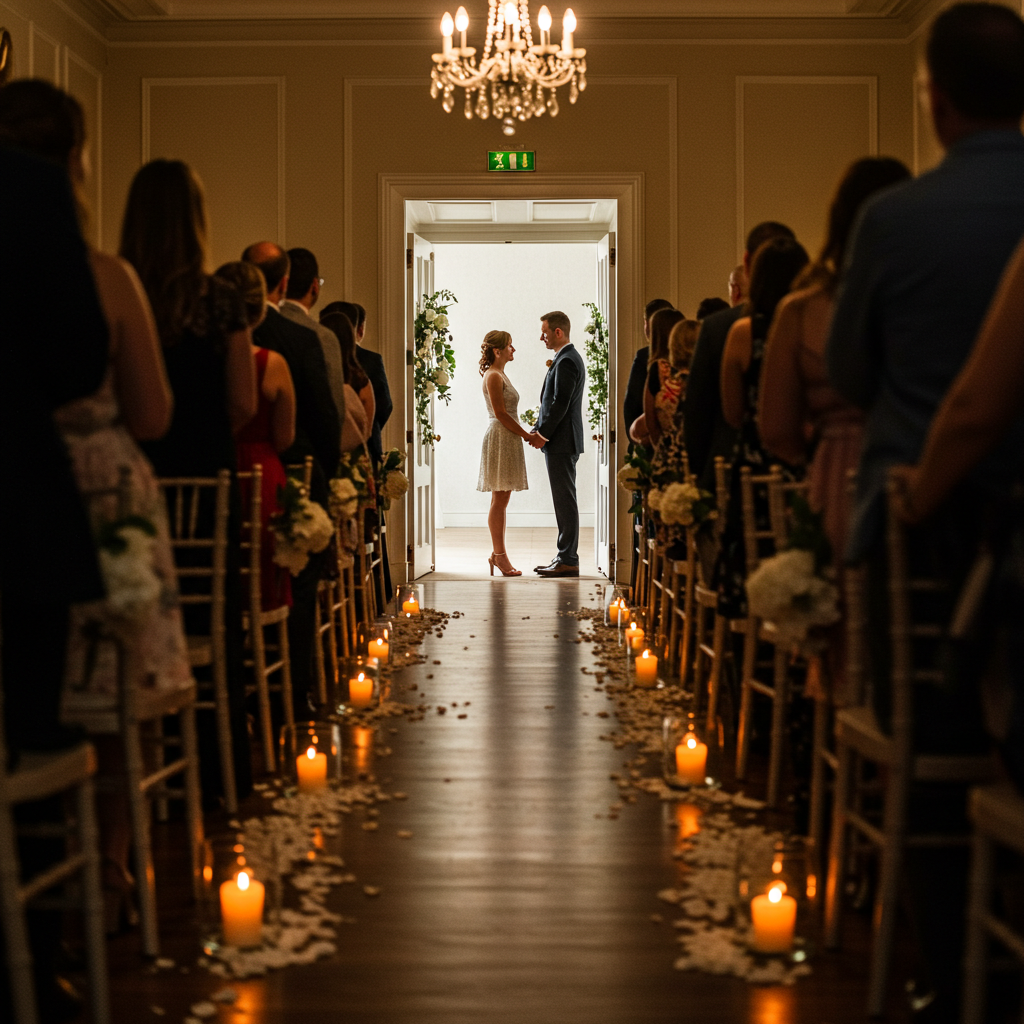
This AITAH story is a reminder that weddings should be about the relationships that nourish you, not the ones that hurt you.
While some people will never understand the toll of parental abandonment, you don’t have to justify your boundaries to them.
